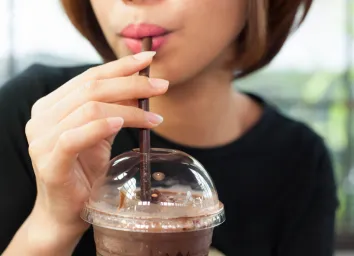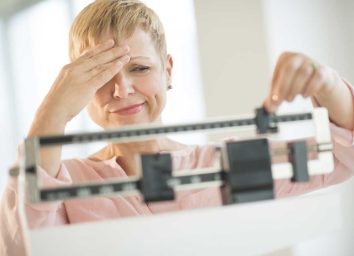4 Worst Drinks Slowing Your Metabolism, Say Dietitians
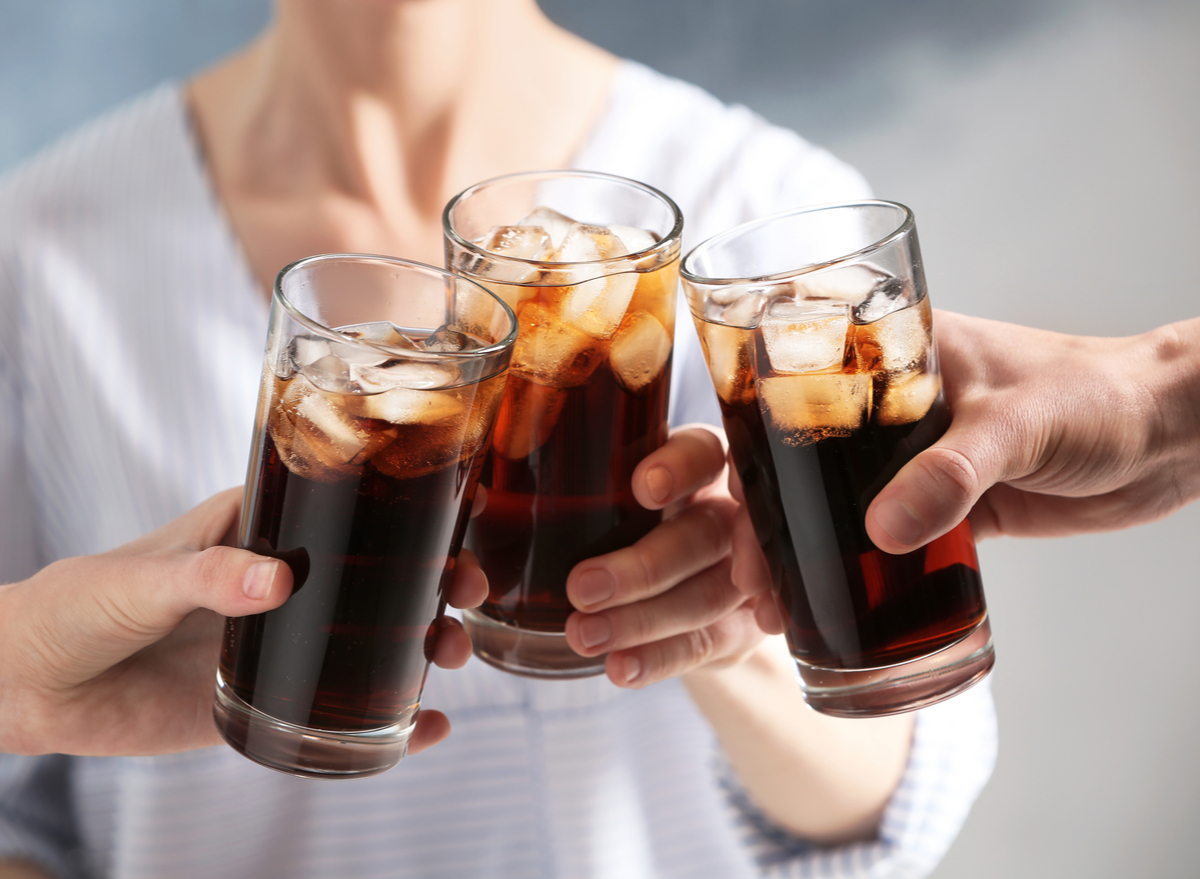
Age, hormone shifts, and natural changes in muscle mass are just some of the factors that could be causing your metabolism to slow. While we can't do much about some of these natural progressions, there are several lifestyle factors that could be causing a slower metabolism, too. Many lifestyle habits, like what you eat, drink, and how much you sleep can influence your metabolism, and the good news is you have a say in improving these factors.
When it comes to what you're drinking, here are the four worst drinks slowing your metabolism. Read on, and for more, don't miss 4 Eating Habits That Slow Your Metabolism After 50, Say Dietitians.
Read the original article on Eat This, Not That!
Sugary drinks
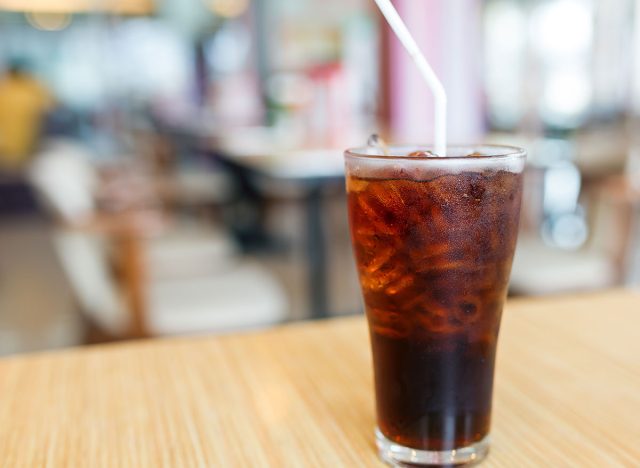
Whether soda, sweetened coffee or tea, juice, or your afternoon energy drink, beverages loaded with refined sugar could be causing your metabolism to slow. Not only can these types of drinks make weight loss more challenging, but they are also linked to several chronic conditions, like diabetes, fatty liver disease, obesity, heart attack, and stroke, according to Harvard Health.
While there is some mixed data on how sugary drinks impact metabolism, one study found when overweight and obese participants consumed 25% of their total calories from fructose-sweetened beverages, resting energy expenditure decreased significantly from baseline. It is important to note the fructose that naturally occurs in fruit is different than the fructose sweetener used in drinks, like high fructose corn syrup. While the fructose in fruit is not in question here, the processed fructose sweetener used in many beverages appears to be a factor leading to reduced metabolism.
Drink This! Tip: Try cutting out at least one of your sweetened drinks each day. Over time, you can reduce your intake more, and replace the sugary drinks with more healthful options, like water, unsweetened carbonated water, and unsweet tea.
Make better eating choices every day by signing up for our newsletter!
Alcohol

This one gets a little tricky, but there is reason to think alcohol may be slowing your metabolism. First off, research indicates in small amounts, alcohol may actually increase metabolism for a short period of time after having a drink. However, outside of that acute period, alcohol may be impacting several factors that could potentially slow your metabolism.
For example, alcohol has been linked to poor quality sleep and duration, which can slow your metabolism. Additionally, alcohol can impair digestion and absorption of essential nutrients which may impact metabolism. Lastly, alcohol is dehydrating and may lessen your likelihood of participating in regular exercise, two factors that can individually impact your metabolism.
Drink This! Tip: Drink alcohol in moderation which is defined as two drinks or fewer per day for males, and one drink for females. Ensure you are well hydrated before having an alcoholic drink and try to limit added sugar in your beverages as well.
You swapped caffeinated for decaf
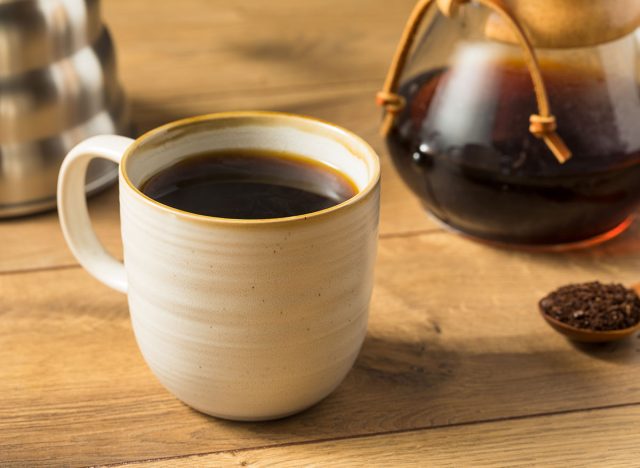
While this may be a necessary adjustment for certain health concerns, decaffeinated drinks don't provide the same "jolt" to your metabolism. Caffeine is a natural stimulant, which can acutely increase your metabolism. If your body is used to caffeine on a regular basis, switching to decaf may naturally lead to a slower metabolism. Caffeine is found in a variety of drinks, from soda and coffee to energy drinks and tea, and frequent consumption of these drinks can boost metabolism throughout the day.
However, if you have cut caffeine for health reasons, you're doing the right thing for your body! Sure, the short metabolism boost following a cup of caffeinated coffee sounds like a perk, but if your caffeine consumption is impacting your overall health, swapping it for decaf is the right choice.
Drink This! Tip: To create a metabolism boost without caffeine, stay well hydrated, get frequent exercise, plan movement throughout the day and avoid long periods of sitting, avoid sugary drinks and excessive alcohol consumption, and make your sleep environment conducive to good quality sleep.
Anything that keeps you from drinking water
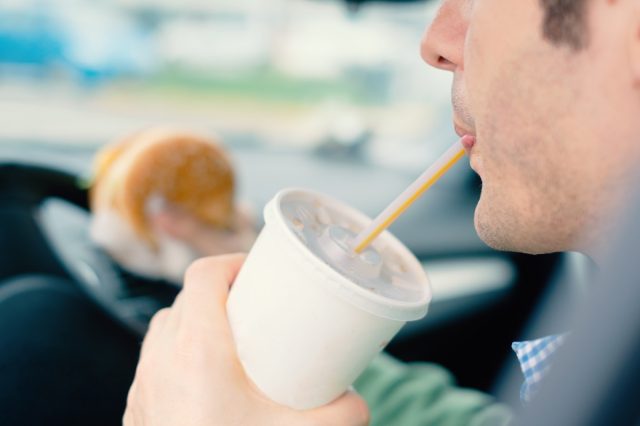
Sure, all beverages contain liquid that can aid in your hydration, but nothing is quite like drinking plain ol' water. If you find yourself loading up on non-water beverages, and you're only getting a sip or two of water by the end of the day, your lack of water could be causing your metabolism to slow. Water recommendations vary from person to person and depend on many different factors, like gender and physical activity. However, it is a good goal for women to consume at least 80 ounces of fluid per day, while men should have over 100 ounces.
Drink This! Tip: Match ounces of water to non-water ounces if you find yourself coming up short on your fluid targets. Eventually, you can aim to drink more water than other beverages combined. Also, try starting your day with a large glass of water to help hydration, and after each non-water drink you have, enjoy equal ounces of water and alternate throughout the day.

